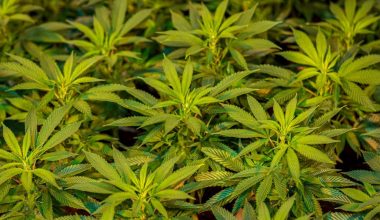
Most commercially available CBD products contain either inaccurate or misleading labeling, according to data published in the journal Cannabis and Cannabinoid Research.
Researchers affiliated with John Hopkins University evaluated the label accuracy and content of 97 commercially marketed hemp-derived CBD products. Products were purchased at either retail stores or online. They included haircare products, cosmetics, foods, and drinks.
Consistent with the findings of other studies, researchers reported that most products contained either more or less CBD than advertised on the products’ labels. Ten products contained zero CBD.
“CBD label accuracy (i.e., percentage deviation between labeled and actual total amounts) did not differ between the two purchase sources (online or retail) or product type,” the study’s authors reported. “CBD label accuracy did not differ significantly between products with labels containing external testing claims and those without.”
Investigators also reported that most manufacturers made either false or misleading claims about the health implications or the efficacy of their products. Hemp-derived CBD products have not been approved by the FDA for the treatment of any condition. By contrast, the FDA has approved the prescription use of Epidiolex – which contains a standardized formulation of CBD extracts – for the treatment of pediatric seizures.
“These findings highlight the need for proper regulatory oversight of cannabinoid-containing products to ensure quality assurance and deter misleading or unfounded health claims in product marketing,” authors concluded.
Provisions in the Agriculture Improvement Act of 2018 federally legalized the production and sale of hemp-derived cannabinoid products. The legislation tasked the FDA with establishing regulations to govern the hemp-derived CBD market. However, last year, regulators countered that Congress – not the FDA – must take primary responsibility for creating a regulatory framework overseeing the commercial production and marketing of hemp-derived cannabinoid products.
Survey data compiled by the National Consumers League reports that more than eight in ten US voters desire greater federal regulatory oversight over the labeling and marketing of commercially available CBD products.
NORML and other groups have urged the FDA to establish regulatory guidelines governing the production, testing, labeling, and marketing of hemp-derived CBD products. Third-party analyses conducted by the FDA and others have consistently reported that commercially available CBD products are of variable quality and potency, and that they may contain contaminants, adulterants, or elevated levels of heavy metals.
An abstract of the study, “Cannabinoid content and label accuracy of various hemp-derived haircare, cosmetic, and edible products available at retail stores and online in the United States,” is available from PubMed.
Related
Medical Disclaimer:
The information provided in these blog posts is intended for general informational and educational purposes only. It is not a substitute for professional medical advice, diagnosis, or treatment. Always seek the advice of your physician or other qualified healthcare provider with any questions you may have regarding a medical condition. The use of any information provided in these blog posts is solely at your own risk. The authors and the website do not recommend or endorse any specific products, treatments, or procedures mentioned. Reliance on any information in these blog posts is solely at your own discretion.






